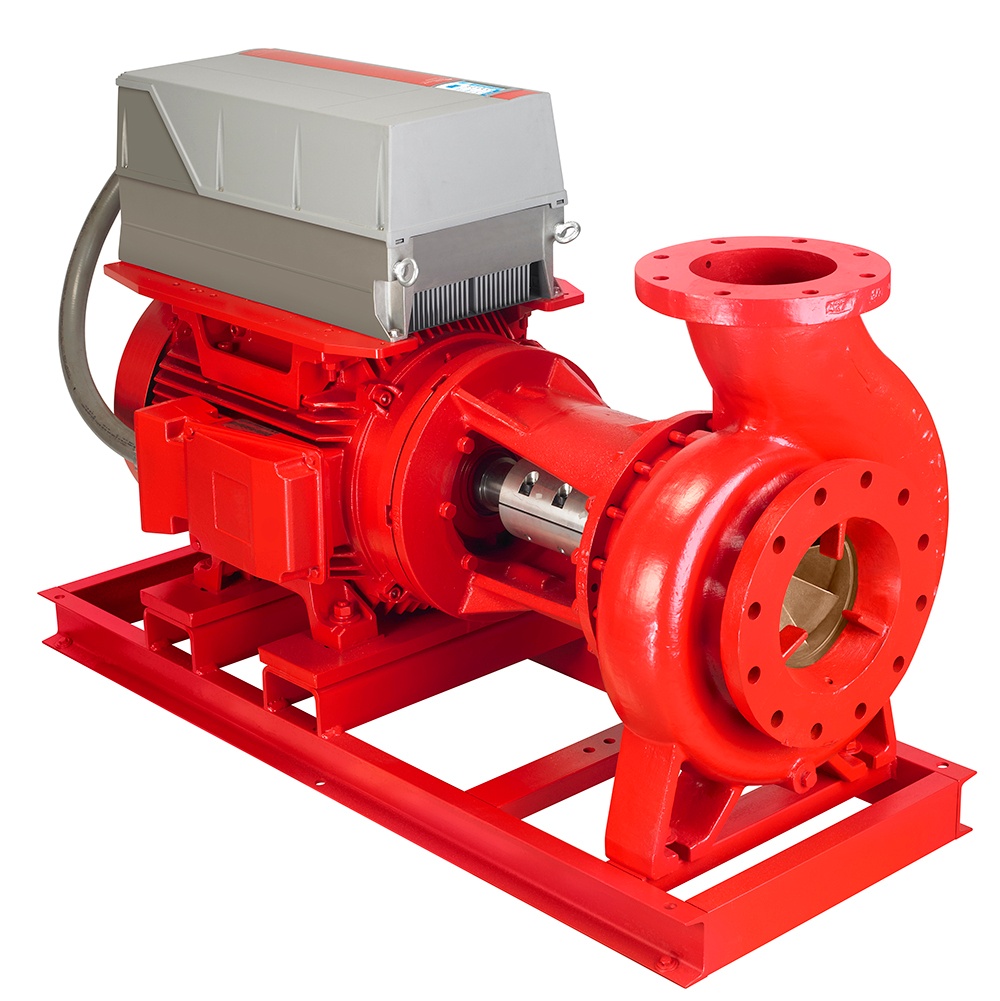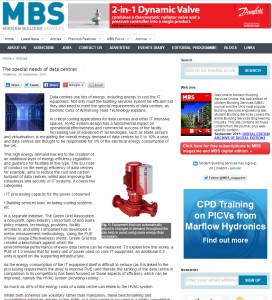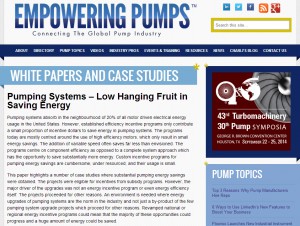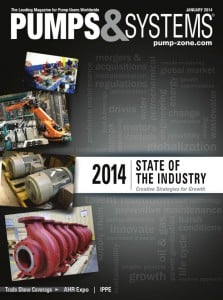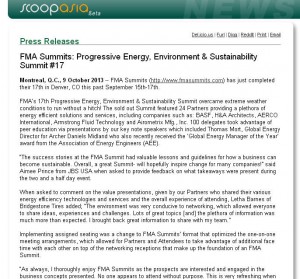As seen on csemag.com – April 13, 2017
As seen on heatinghelp.com – March 8, 2017
A High-Rise Residential Facility Case Study
Ventus at Metrogate is a condominium complex located in the greater Toronto area, developed by Tridel Corporation. Upholding the company’s commitment to environmental leadership. Ventus suites boast a number of energy efficient, sustainable features including low voc paints and carpeting, Energy Star® appliances, energy recovery ventilation and high efficiency HVAC systems.
Armstrong originally supplied the pumps that support the HVAC system: two base mounted Series 4030 pumps, configured in parallel mode. Sized to provide 368 gpm at 100 feet of pressure (84 m3/hr at 30 m), each pump was attached to a variable speed drive purchased separately.
Topics: Uncategorized, HVAC, Prallel Sensorless Technology
As seen on acrjournal – March 03, 2017
Shane Leather, Business Development Manager – Tall Buildings at Armstrong Fluid Technology, looks at energy efficiency strategies for large-scale HVAC installations.
When designing large-scale HVAC installations, the stakes are high. Even seemingly minor design decisions can have major implications when the resulting energy savings (or indeed energy wastage) are scaled up across a large multi-storey building. Achieving outstanding levels of energy efficiency is far from easy in these large-scale projects, however. The challenges fall into a number of categories:
Topics: Uncategorized, HVAC, In The Media
Luxury Chicago high-rise makes intelligent efficiency additions
As seen on pmengineer.com – January 12, 2017
Chicago’s luxury high-rise residential complex 340 On The Park find efficiency in tankless water heaters.
Topics: eff, Energy Efficient, Uncategorized, In The Media
Hospital Saves More Than $600,000 with Retrofitted HVAC Variable Speed Cooling System
As seen on pumpsandsystems.com – January 2017
Pumps played a key role in the facility’s energy efficiency improvements.
By Brent Ross
Armstrong Fluid Technology
Gaining an average of $200,000 a year in heating, ventilation and air-conditioning (HVAC) energy savings would be important to any organization. For Methodist Dallas Medical Center (MDMC), it means being able to direct more money toward critical—even lifesaving—health services.
Topics: Retrofit, Uncategorized, Case Study, In The Media
Have you entered the Armstrong Retro Gadget Giveaway?
As technology advances, every industry evolves over time, and the HVAC industry is no exception. The early Egyptians are credited with using the first evaporative cooling technology in houses, but had no electricity to power pumps and fans. Jump ahead a few thousand years and HVAC technology has come a long way. In its own unique way each successive technological advance revolutionizes the industry.
Click image to enter
Topics: Uncategorized
As seen on modbs.co.uk : 03 September, 2015
Data centres use lots of energy, including energy to cool the IT equipment. Not only must the building-services system be efficient but they also need to meet the special requirements of data centres, as Dominic Cutts of Armstrong Fluid Technology explains.
In critical cooling applications for data centres and other IT intensive spaces, HVAC system design has a fundamental impact on operational effectiveness and commercial success of the facility. Increasing use of advanced IT technologies, such as blade servers and virtualisation, is escalating the overall energy demand of data centres by 5 to 10% a year, and data centres are thought to be responsible for 3% of the electrical energy consumption of the UK.
Topics: Armstrong Fluid Technology, Data Center, Uncategorized
Pumping Systems – Low Hanging Fruit in Saving Energy
As seen on empoweringpumps.com - June 20, 2013
Pumping systems absorb in the neighbourhood of 20% of all motor driven electrical energy usage in the United States. However, established efficiency incentive programs only contribute a small proportion of incentive dollars to save energy in pumping systems. The programs today are mostly centred around the use of high efficiency motors, which only result in small energy savings. The addition of variable speed often saves far less than envisioned. The programs centre on component efficiency as opposed to a complete system approach which has the opportunity to save substantially more energy. Custom incentive programs for pumping energy savings are cumbersome, under resourced, and their usage is small.
Topics: Uncategorized
Deep Lake Water Cooling Provides Alternative to Conventional System
As seen in pump-zone.com - January 1, 2014
VIL pumps and design envelope technology reduce energy use and cool Toronto’s downtown.
By Brent Ross, Armstrong Fluid Technology
Deep lake water cooling (DLWC) is a groundbreaking cooling system that provides an alternative to conventional air conditioning. The system uses cold water from Lake Ontario to cool buildings in Toronto’s downtown core. The DLWC system has enough capacity to cool 3 million square meters (32 million square feet) of building space and is the largest renewable, lake-source cooling system of its kind in North America.
Topics: Armstrong Fluid Technology, Design Envelope, Enwave, Installation, Magazine, Pumps & Systems, Sustainability, Uncategorized, 4300 Split-coupled, HVAC, Vertical
Armstrong Fluid Technology Featured at Progressive Energy, Environment & Sustainability Summit
As seen on news.scoopasia.com - October 9, 2013
Montreal, Q.C., 9 October 2013 -- FMA Summits (http://www.fmasummits.com) has just completed their 17th in Denver, CO this past September 15th-17th.
FMA’s 17th Progressive Energy, Environment & Sustainability Summit overcame extreme weather conditions to run without a hitch! The sold out Summit featured 24 Partners providing a plethora of energy efficient solutions and services, including companies such as: BASF, H&A Architects, AERCO International, Armstrong Fluid Technology and Airometrix Mfg., Inc. 100 delegates took advantage of peer education via presentations by our key note speakers which included Thomas Mort, Global Energy Director for Archer Daniels Midland who also recently received the ‘Global Energy Manager of the Year’ award from the Association of Energy Engineers (AEE).
Topics: Uncategorized

